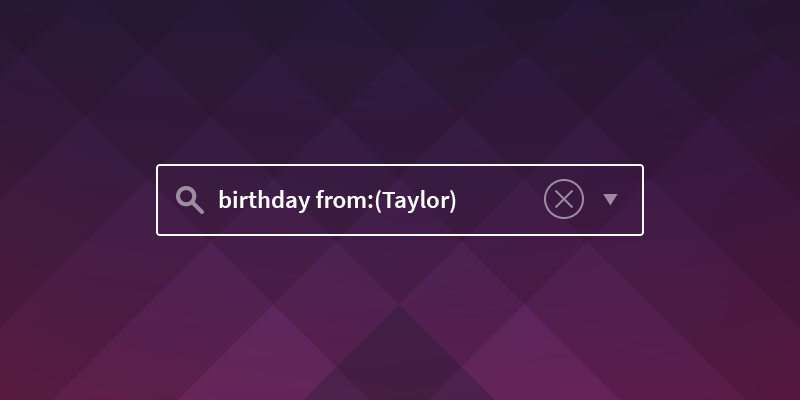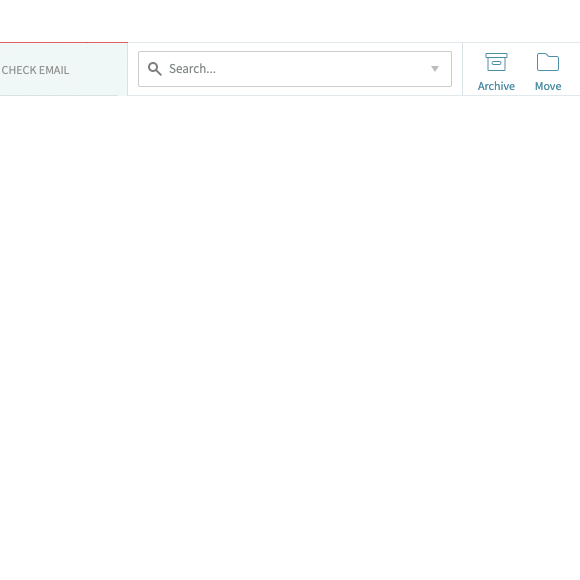Email has transformed from an asynchronous form of communication to an “always-on” utility. And as the number of emails continuously increases, it becomes more and more difficult to keep track of them.
This is why knowing how to search emails is essential for productivity at the office.

At Axigen, we’re always looking for ways to improve email productivity and efficiency. That’s why, starting with Axigen X3 Update 2, we’ll be rolling out a new email search, making the process even easier for you.
How do we plan to achieve this? First, by introducing new search indexes for a faster and more efficient email search. Think of a Quick search with all the benefits of an Advanced search (like automatically scanning all folders).
Second, by updating the user experience to make it simpler for all users to find what they need, while also introducing a number of shortcuts to fine tune results for the more tech savvy ones.
How do you search email in Axigen X3 Update 2?
Head to the email search bar and use one of the following keywords / prefixes with your search:
| Keyword / Prefix | Description and usage examples |
|---|---|
| from |
From contains. Works with or without a space after the colon. When in quotes, exact match will be applied.
from:John from:(John Doe) from:("John Doe") |
| to |
To contains. Works with or without a space after the colon. When in quotes, exact match will be applied.
to:John to:(John Doe) to:("John Doe") |
| subject |
Subject contains. Works with or without a space after the colon. When in quotes, exact match will be applied.
subject:Party subject:(Summer Party) subject:("Summer Party") |
| body |
Body contains. Works with or without a space after the colon. When in quotes, exact match will be applied.
body:Party body:(Summer Party) body:("Summer Party") |
| is |
Used for searches based on email flags. Works with or without a space after the colon.
is:follow-up |
| cc |
Cc contains. Works with or without a space after the colon. When in quotes, exact match will be applied.
cc:John cc:(John Doe) cc:("John Doe") |
| bcc |
Bcc contains (will only return results from Sent and Drafts). Works with or without a space after the colon. When in quotes, exact match will be applied.
bcc:John bcc:(John Doe) bcc:("John Doe") |
| has |
Used for searches based on importance or attachments. Works with or without a space after the colon.
has:high-importance has:low-importance has:attachment |
| before after |
Used for searches based on date; they can also be used together. Works with or without a space after the colon.
before:24/06/2020 after:17/06/2020 |
| smaller larger |
Used for searches based on size; they can also be used together. Works with or without a space after the colon.
smaller:5M larger:2M |
| - |
Negation / exclusion operator; can be used with any of the keywords above.
from:-John is:-follow-up |
Let’s say you want to find a specific invoice from earlier this year. If you know the email subject line contains the keyword “invoice”, you can search for it using the keyphrase subject: invoice 2020. A list with all the emails that contain invoice 2020 in the email subject will be returned, from your current Inbox, as well as all your existing folders.
Or, let’s say you’re looking for something more personal. If you want to find a specific birthday greeting from your friend Taylor, you can now simply search the keyphrase birthday from:(Taylor) and see every email containing this keyword from that specific contact.

All these criteria will also be reflected in the advanced search panel.
What does this update do?
In a nutshell, this new and improved email search in Axigen X3 Update 2 means:
- More efficient searches — searching all emails and folders;
- Faster results — waiting time is significantly decreased;
- Better experience — improved UX, with no need for multiple searches.
Refactored email search on Axigen Mail Server
The refactored email search will be automatically available for all users with Axigen X3 Update 2.
Important upgrade information for SysAdmins:
For the new search functionality, the search and sort indexes have been redesigned using a new technology. The re-creation of the new indexes as part of the upgrade process is expected to last a few hours (depending on your storage size) and will require about 30% temporary additional storage capacity during the upgrade process.
We recommend upgrading at night or when there's low system usage. Once the upgrade is complete, the total storage use will be lower than before, as the new indexes are lighter.